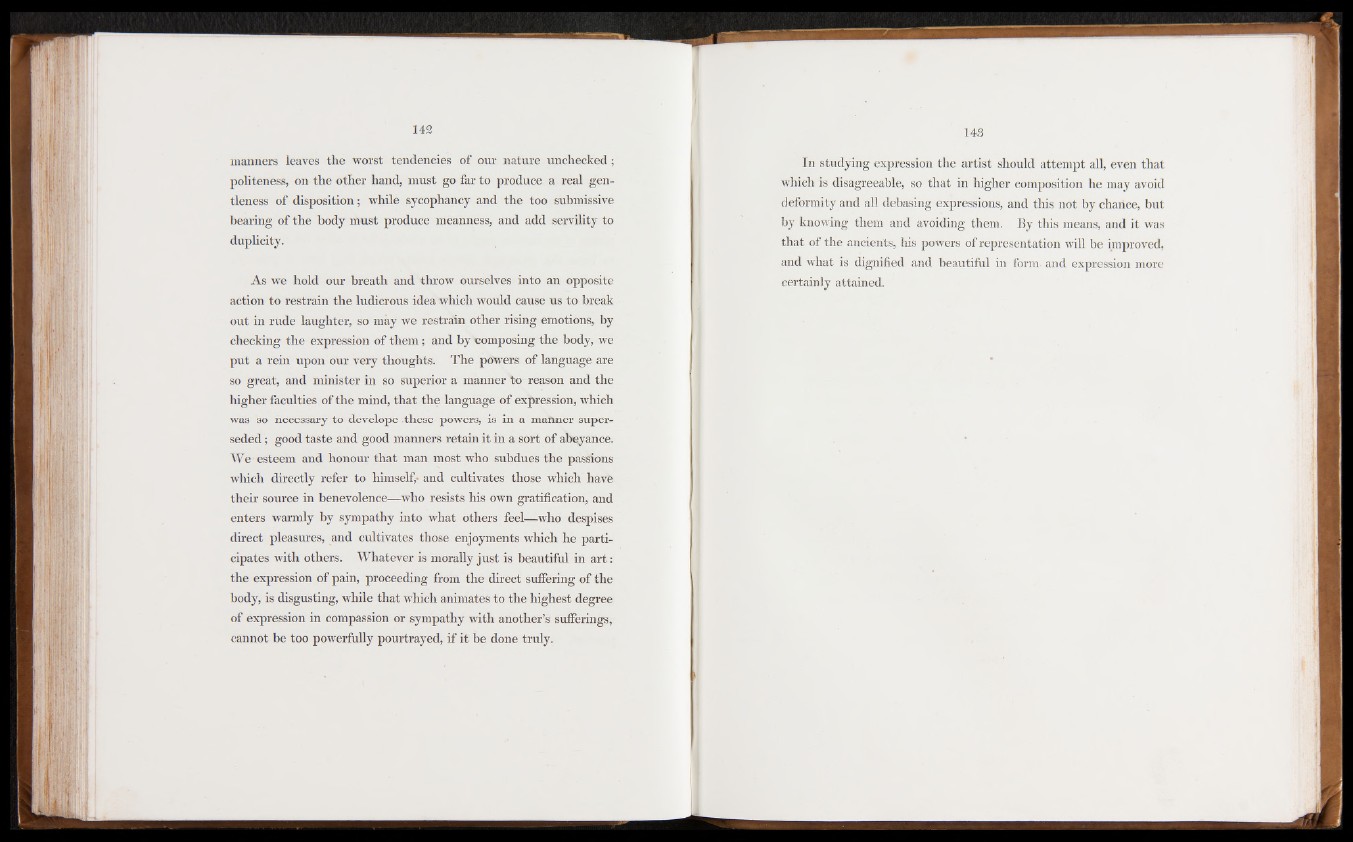
manners leaves the worst tendencies of our nature unchecked;
politeness, on the other hand, must go far to produce a real gentleness
of disposition; while sycophancy and the too submissive
bearing of the body must produce meanness, and add servility to
duplicity.
As we hold our breath and throw ourselves into an opposite
action to restrain the ludicrous idea which would cause us to break
out in rude laughter, so may we restrain other rising emotions, by
checking the expression of them; and by composing the body, we
put a rein upon our very thoughts. The powers of language are
so great, and minister in so superior a manner to reason and the
higher faculties of the mind, that the language of expression, which
was so necessary to develope .these powers, is in a manner superseded
; good taste and good manners retain it in a sort of abeyance.
We esteem and honour that man most who subdues the passions
which directly refer to himself,- and cultivates those which havé
their source in benevolence—who resists his own gratification, and
enters warmly by sympathy into what others feel—who despises
direct pleasures, and cultivates those enjoyments which he participates
with others. Whatever is morally just is beautiful in art:
the expression of pain, proceeding from the direct suffering of the
body, is disgusting, while that which animates to the highest degree
of expression in compassion or sympathy with another’s sufferings,
cannot be too powerfully pourtrayed, if it be done truly.
In studying expression the artist should attempt all, even that
which is disagreeable, so that in higher composition he may avoid
deformity and all debasing expressions, and this not by chance, but
by knowing them and avoiding them. By this means, and it was
that of the ancients, his powers of representation will be improved,
and what is dignified and beautiful in form and expression more
certainly attained.